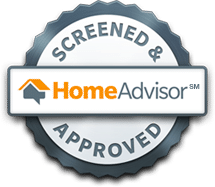(609) 905-6653 | (833) KIL-MOLD
Protecting Your Pets With Mold Testing: Viruses and Diseases
The Importance of Proper Mold Testing for Pet Safety
As pet owners, we strive to provide a safe and healthy environment for our furry companions. While we may be aware of common threats, such as fleas and ticks, it's important to recognize that mold exposure can also put our pets at risk of various health issues.
In addition to health problems and allergic reactions, mold-infested environments can contribute to the spread of certain viral diseases.
In this blog post, we will explore how pets can catch diseases like canine parvovirus, canine distemper, and kennel cough due to mold exposure. Understanding these risks underscores the importance of proper mold testing and prevention to safeguard our beloved animals.
Canine Parvovirus:
Canine parvovirus (CPV) is a highly contagious viral infection that affects dogs, particularly puppies. The virus can survive in the environment for extended periods, and mold-infested areas can potentially harbor the virus
.
When dogs come into contact with contaminated surfaces or inhale airborne particles, they can contract CPV. Symptoms of parvovirus infection include severe diarrhea, vomiting, loss of appetite, and lethargy.
By ensuring proper mold testing and remediation, you can help reduce the risk of your pet's exposure to CPV and other viruses.
Canine Distemper:
Canine distemper is another serious viral disease that affects dogs. This highly contagious virus spreads via mold allergy and bodily fluids of infected animals. Mold-infested environments with poor ventilation can facilitate the transmission of the distemper virus.
Dogs that come into contact with infected surfaces or inhale airborne particles may become susceptible. Symptoms of distemper include fever, nasal discharge, coughing, vomiting, diarrhea, and neurological signs. Regular mold testing and maintaining a clean and well-ventilated environment can help reduce the risk of distemper transmission.
Kennel Cough:
Kennel cough, also known as canine infectious tracheobronchitis, is a respiratory infection commonly seen in dogs, especially those in close quarters such as kennels, boarding facilities, or dog parks.
Mold growth in these environments can exacerbate the risk of kennel cough. The infection spreads through airborne respiratory droplets, and dogs that inhale these droplets can contract the disease.
Symptoms include a persistent cough, sneezing, nasal discharge, and mild fever. Proper mold testing and maintaining good hygiene in shared pet spaces can help minimize the risk of kennel cough transmission.
Mold-Related Complications:
It's worth noting that mold exposure can weaken a pet's immune system, making them more susceptible to various diseases, including viral infections.
Mold spores and mycotoxins can irritate the respiratory system, leading to respiratory distress and increased vulnerability to respiratory viruses.
By conducting regular mold testing and ensuring a mold-free environment, you can reduce the risk of mold-related complications and improve your pet's overall health and resilience.
Aspergillosis:
Aspergillosis is a fungal infection caused by the Aspergillus mold. Pets can inhale the mold spores, leading to respiratory problems. Symptoms may include coughing, wheezing, difficulty breathing, nasal discharge, and lethargy.
In severe cases, the infection can spread to other organs. Timely mold testing and remediation can help prevent the spread of Aspergillus and protect your pets from this respiratory illness.
Mycotoxins Poisoning:
Certain types of molds produce mycotoxins, which are toxic substances that can harm both humans and animals. Pets can be exposed to mycotoxins through direct contact with mold-contaminated surfaces or by ingesting mold-infested food.
Mycotoxin poisoning can lead to symptoms such as vomiting, diarrhea, loss of appetite, lethargy, and even organ damage. Regular mold testing is crucial to identify and eliminate sources of mold that may be producing mycotoxins in your home.
Ringworm:
Ringworm is a highly contagious fungal infection that can affect both humans and animals. Although it is not caused by mold directly, the presence of mold in damp environments can create conditions that promote the growth of fungi responsible for ringworm.
Pets can contract ringworm by coming into contact with spores or infected animals. Symptoms include circular skin lesions, hair loss, itching, and skin inflammation. Mold testing can help identify areas of high humidity or water damage, reducing the risk of ringworm infection.
Conclusion:
Protecting our pets from the risks associated with mold exposure goes beyond respiratory issues and allergies. It also involves preventing the spread of viral diseases that can be facilitated by mold-infested environments.
By understanding the risks of diseases such as canine parvovirus, canine distemper, and kennel cough, we can take proactive steps to ensure the health and well-being of our beloved animals. Regular mold testing, effective remediation, and maintaining clean and well-ventilated spaces are crucial in creating a safe environment.
It minimizes the risk of viral infections and other health complications. Consult with professionals to assess your home or pet areas for mold presence, address any issues promptly, and prioritize the health of your pets in their living environment.
Contact Kill Mold for Long Term Mold Removal
When it comes to long-term mold removal, it is essential to contact professionals like Kill Mold who specialize in effective mold remediation. DIY methods may provide temporary relief, but they often fail to address the root cause of mold growth, allowing it to return over time.
Kill Mold's team of experts utilizes advanced techniques and equipment to eliminate mold at its source and prevent its recurrence. With their extensive knowledge and experience, they assess the extent of the mold problem, develop a comprehensive remediation plan, and execute it with precision.
By tackling the underlying moisture issues and thoroughly removing mold colonies, Kill Mold ensures a safe and mold-free environment for the long term. Contacting Kill Mold is the first step towards a lasting solution to your mold concerns, protecting your property and promoting the health and well-being of you and your loved ones.

ADA Disclaimer
Kill Mold is committed to making its website/social media accessible and user-friendly for everyone. If you are having difficulty viewing or navigating the content on our website, or notice any content, feature or functionality that you believe is not fully accessible to individuals with disabilities, please call 833-545-6653.
Contact
